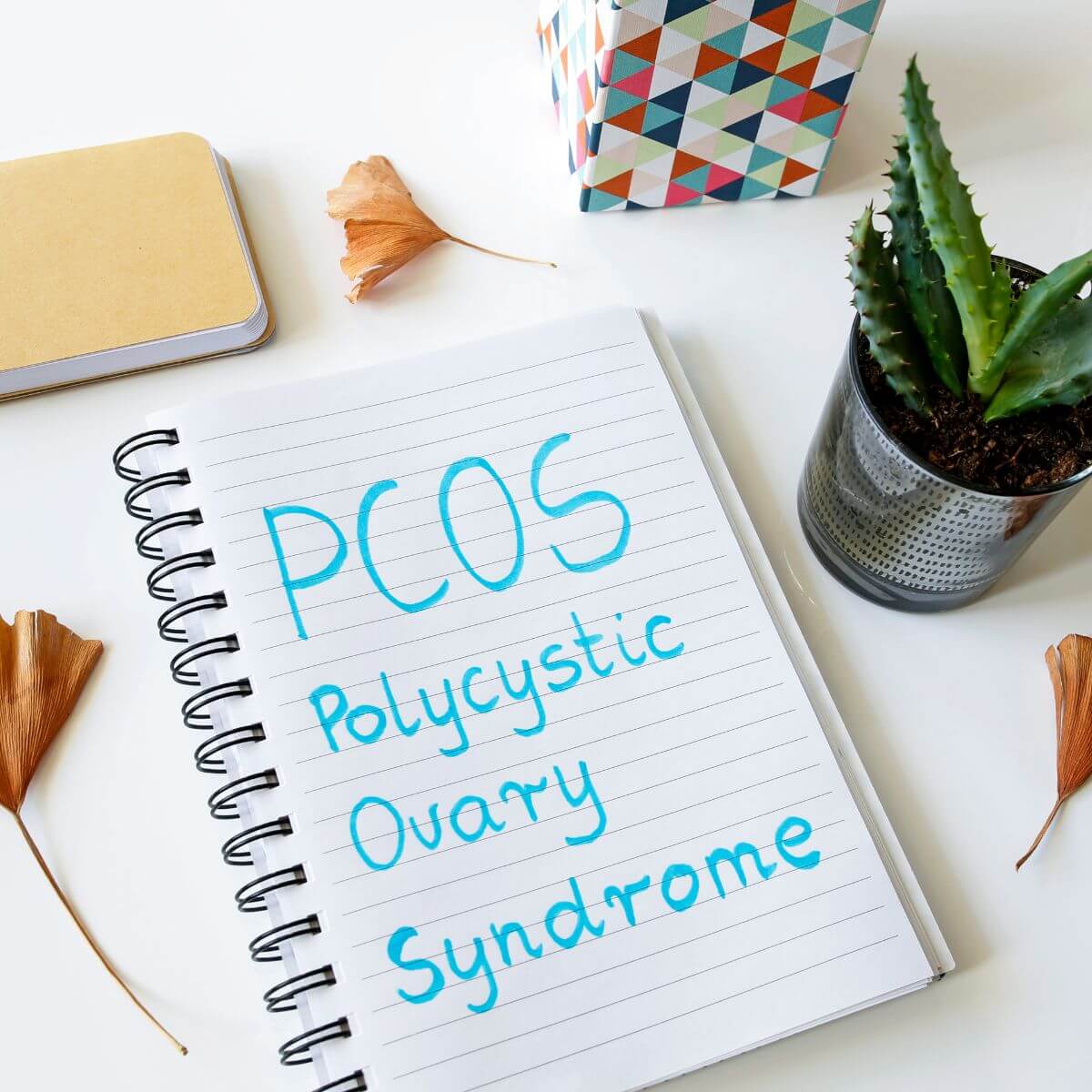Hormonal health is intricately tied to how a woman feels – physically, emotionally, and mentally. But when chronic stress enters the picture, it can send the delicate hormonal system into disarray. Elevated cortisol levels, adrenal dysregulation, and disrupted circadian rhythms can interfere with everything from ovulation and progesterone production to thyroid and gut function.
For women, this means more than just fatigue or mood swings. It can show up as irregular cycles, stubborn weight gain, acne, anxiety, sleep issues, and even burnout. And the truth is, our modern lifestyles rarely offer enough space for deep rest or true restoration.
Understanding the stress-hormone connection is the first step toward reclaiming your balance. Through a rhythm-based, nourishment-first approach like The Harmony Method™, you can begin to calm the nervous system, support adrenal health, and gently bring your hormones back into alignment – without relying on extreme diets or over-exercising.

In this article, we will explore the complex relationship between chronic stress and hormonal balance in a woman, shedding light on the scientific mechanisms that underlie these interactions. We also explore the 8 most common root causes of PCOS and examples of effects of chronic stress on hormones that lead to anxiety.
Hormonal health plays a pivotal role in our well-being, influencing various bodily functions and processes. Stress has become an integral part of modern life, affecting millions of individuals worldwide.
Understanding Hormonal Health
Hormones are chemical messengers that regulate numerous bodily functions, including metabolism, growth, immune response, and reproduction.
As a woman, maintaining hormonal balance is crucial for optimal health, as even minor imbalances can lead to a range of symptoms including:
- Mood swings
- Unwanted weight changes
- Anxiety / depression
- Acne & other skin conditions
- Low libido
- Difficulty sleeping
- Fatigue
- Chronic health conditions
Common hormonal imbalances include disruptions in cortisol, thyroid hormones, and sex hormones.
Unveiling the Stress Response
The body’s stress response, often referred to as “fight or flight,” is a survival mechanism that dates back to our evolutionary past. When faced with a perceived threat, the adrenal glands release cortisol, a stress hormone, to prepare the body for immediate action.
While this response can be life-saving in acute situations, chronic stress can lead to an overactive stress response and sustained elevated cortisol levels.
Complex Interplay: Stress and Hormones
Chronic stress takes a toll on hormonal balance through a multifaceted interplay. Elevated cortisol levels, a hallmark of chronic stress, can disrupt the Hypothalamic-Pituitary-Adrenal (HPA) axis, the body’s central stress response system.
This disruption can lead to a cascade of effects, including reduced production of sex hormones like estrogen and testosterone.
Moreover, chronic stress impacts thyroid function. The Hypothalamic-Pituitary-Thyroid (HPT) axis regulates thyroid hormone production.
Prolonged stress can suppress the HPT axis, leading to decreased thyroid hormone levels, and potentially causing symptoms such as fatigue, weight gain, and mood disturbances.
Stress, Hormones, and Specific Health Concerns
The effects of chronic stress on hormonal health extend to various specific health concerns. In women, stress-induced menstrual irregularities can result from altered levels of sex hormones.
Stress-related weight gain is often attributed to cortisol’s role in promoting abdominal fat storage and disrupting insulin sensitivity, leading to metabolic disturbances.
Quality sleep is vital for hormonal regulation, but chronic stress can disrupt sleep patterns. The disruption of circadian rhythms affects melatonin production, a hormone crucial for sleep.
Furthermore, chronic stress is associated with mood disorders like anxiety and depression, which involve imbalances in neurotransmitters like serotonin and dopamine.

8 Common Root Causes of PCOS
Polycystic ovary syndrome (PCOS) is a complex hormonal disorder that can have various underlying causes. While the exact cause of PCOS is not fully understood, several factors are believed to contribute to its development.
The impact between chronic stress and hormonal balance in a woman can often lead to PCOS.
Most common root causes of PCOS include:
Insulin Resistance
Condition in which the body’s cells do not respond effectively to insulin, leading to elevated levels of insulin in the blood.
This can disrupt hormonal balance & lead to increased production of androgens (male hormones), which is a characteristic feature of PCOS.
Hormonal Imbalance
PCOS characterized by an imbalance of hormones, including elevated levels of androgens (such astestosterone),) & luteinizing hormone (LH), & lower levels of follicle-stimulating hormone (FSH).
This hormonal imbalance can affect ovarian function & lead to cysts on the ovaries.
Genetics
PCOS appears to be a genetic component, often runs in families. Certain gene variants may predispose individuals to develop PCOS.
Inflammation
Chronic low-grade inflammation may play a role in the development of PCOS. Inflammation can impact insulin sensitivity & hormonal balance.
Lifestyle Factors
Another common root cause of PCOS is lifestyle choices. Poor diet, lack of physical activity, and obesity, which are associated with an increased risk of PCOS.
These factors can contribute to insulin resistance & hormonal imbalances.
Environmental Factors
Exposure to certain environmental toxins & endocrine-disrupting chemicals may influence the development of PCOS.
Ovarian Dysfunction
PCOS is characterized by the presence of multiple small cysts on the ovaries. These cysts result from follicles that have not matured properly & released an egg during the menstrual cycle.
Hyperandrogenism
Elevated levels of androgens (male hormones) hallmark of PCOS. Can lead to symptoms such as acne, excess facial and body hair (hirsutism), & male-pattern hair loss (alopecia).
Suspect you have PCOS or are experiencing symptoms of the condition, and would like to join the Paleo 3-Week Nutrition Challenge.

Examples of Chronic Stress and the Impact on Hormones
The impact of chronic stress on the human body is a topic of increasing concern in today’s fast-paced world. When we experience ongoing stress, it can directly affect our hormones and disrupt various bodily functions.
Let’s delve deeper into this fascinating connection, with some examples of chronic stress effects.
When stress becomes chronic, the body’s stress response system is constantly activated. This triggers the release of stress hormones, such as cortisol, from the adrenal glands.
While cortisol is an essential hormone that regulates various bodily processes, excessive and prolonged exposure to it can have detrimental effects on our health.
📥 GET THIS ARTICLE IN YOUR INBOX 📥
Let’s dive into some examples of chronic stress.
HPA Axis
One of the ways chronic stress affects hormones is by disrupting the balance of the hypothalamic-pituitary-adrenal (HPA) axis. The HPA axis is a complex feedback loop involving the hypothalamus, pituitary gland, and adrenal glands.
Chronic stress can lead to dysregulation of this axis, resulting in abnormal cortisol levels.
Cortisol Levels
Another example of chronic stress involves cortisol. High levels of cortisol, which can affect several bodily systems. For instance, it can suppress the immune system, making individuals more susceptible to infections and illnesses.
Furthermore, cortisol can influence metabolism, leading to increased appetite and potential weight gain. It may also have an impact on sleep patterns, contributing to difficulty falling asleep or staying asleep.
Adrenaline
Another hormone affected by chronic stress is adrenaline, also known as epinephrine. Adrenaline is responsible for the “fight-or-flight” response, which prepares our bodies to cope with a perceived threat.
Prolonged hormone stress can lead to an overproduction of adrenaline, which can cause restlessness, irritability, and even anxiety symptoms.
Not only do stress hormones have physical effects, but they can also affect our mental and emotional well-being. Chronic stress has been linked to an increased risk of anxiety disorders and depression.
These conditions can further influence hormone production and regulation, creating a complex interplay between stress and hormonal balance.
In conclusion, chronic stress can have profound effects on our hormones, anxiety, and overall health.
By managing stress levels through relaxation techniques, exercise, and seeking support, we can mitigate the negative impacts of chronic stress on our hormonal balance.
Remember, a balanced and healthy lifestyle plays a crucial role in maintaining optimal physical and mental well-being.
Strategies for Managing Stress and Promoting Hormonal Health
Managing stress is essential for restoring and maintaining hormonal balance. Incorporating mindfulness techniques, deep breathing, and relaxation exercises can help regulate the stress response.
Regular exercise plays a dual role by reducing stress and promoting the release of endorphins, the body’s natural mood enhancers.
Dietary choices also impact hormonal health under stress.
Consuming nutrient-rich foods supports adrenal function, while adaptogenic herbs like ashwagandha and rhodiola can help stress management.
Naturopathic approaches, such as herbal supplements and holistic therapies like acupuncture, complement lifestyle changes for comprehensive stress reduction.
Case Study: Real-Life Examples
Meet my client, Sarah, a 32-year-old woman, who experienced irregular menstrual cycles and unexplained weight gain. Her anxiety over chronic stress was impacting her hormones.
After a comprehensive evaluation, a naturopathic doctor identified chronic stress as a contributing factor. Through a personalized plan involving stress-reduction techniques, dietary changes, and herbal supplements, Sarah’s hormonal balance gradually improved, leading to regular cycles and weight loss.
10 Nourishing Way To Honor Yourself Through Hormone Balance
Feeling off-balance lately? Hormone imbalances can leave you feeling like a stranger in your own body -fatigued, irritable, bloated, or simply not yourself. If you’re in that place right now, know this: You deserve to feel supported, not defeated. 💛
When your hormones are out of rhythm, it’s easy to feel like you need to “fix” everything at once. But true healing isn’t about doing more – it’s about tuning in and supporting your body with gentle, consistent care. Below are ten powerful yet simple ways to begin nurturing balance from within.
🌿 Practice Mindful Eating – Slow down and listen to your body’s hunger and fullness cues. Nourish yourself with whole, nutrient-dense foods that support hormonal and gut health.
🌿 Set Gentle Boundaries – Protect your energy by learning to say no to what drains you and yes to what restores you.
🌿 Incorporate Stress-Reduction Practices – Daily breathwork, journaling, or meditation can regulate cortisol and calm the nervous system.
🌿 Move Your Body Gently – Swap intense workouts for restorative movement like walking, yoga, or stretching to support your adrenals.
🌿 Speak Kindly To Yourself – Replace self-criticism with compassion. Your body is doing its best. It deserves grace, not judgment.
🌿 Prioritize Rest And Sleep – Deep, restorative sleep is foundational for hormone repair and resilience. Create a calming evening routine and honor your body’s need for rest.
🌿 Celebrate The Small Wins – Healing is a journey. Acknowledge progress, no matter how small – it all counts.
🌿 Create A Self-Care Routine – Daily rituals like dry brushing, herbal teas, or a warm bath can ground your day and signal safety to your body.
🌿 Reach Out For Support – You don’t have to do this alone. Connection with trusted friends, a practitioner, or a support group can make a world of difference.
🌿 Give Yourself Permission To Slow Down – Rest is productive. Slowing down allows your body the space it needs to repair and recalibrate.
Start with just one of these practices. Then build from there. Healing doesn’t have to be harsh. It can be soft, slow, and deeply rooted in self-compassion. 🌙
💛 Ready to Rebalance Your Hormones the Nourishing Way?
Download my free Eat Your Way to Hormone Health Guide and discover how to fuel your body with the right foods and rhythms to support hormone harmony – without restriction or overwhelm.
👉 Click here to grab your guide now!
Conclusion
The intricate relationship between chronic stress and hormonal health underscores the need for proactive stress management. By understanding the scientific mechanisms behind stress’s impact on hormones, we empower ourselves to make informed choices that promote overall well-being and reduce anxiety.
So, how does a woman move forward with fixing her hormonal balance in the body? By making necessary changes with personalized guidance and support on the journey to restore hormonal balance and conquer the effects of chronic stress.

So, Let’s Discuss Chronic Stress, and Hormonal Balance in a Woman
Were any of these root causes of PCOS a surprise to you? Know someone with PCOS that could benefit from this? Did the connection between chronic stress and hormonal balance surprise you? Share your experiences in the comments below?
You can also connect with me @EatYourNutrition on Instagram. I love seeing your photos. #EatYourNutrition #LauraVillanueva
ADDITIONAL RESOURCES
Also, for further reading and guidance on stress management and hormonal health, consider exploring the following resources:
– Book: “The Hormone Cure” by Dr. Sara Gottfried
– Article: “Stress and Hormones”
– Join the 3-Week Paleo Nutrition Challenge – Expert advice on naturopathic approaches to stress reduction and hormonal balance. Let’s get rid of anxiety and balance those hormones with healthy eating.
– Support: Join my Reset & Renew Nutrition Program. Register here.

RESET & RENEW
Nutrition Program
Register and learn to eat healthy, understand your metabolism, change your mindset, and maintain a healthy lifestyle for your life.
Discover more from Eat Your Nutrition™
Subscribe to get the latest posts sent to your email.






